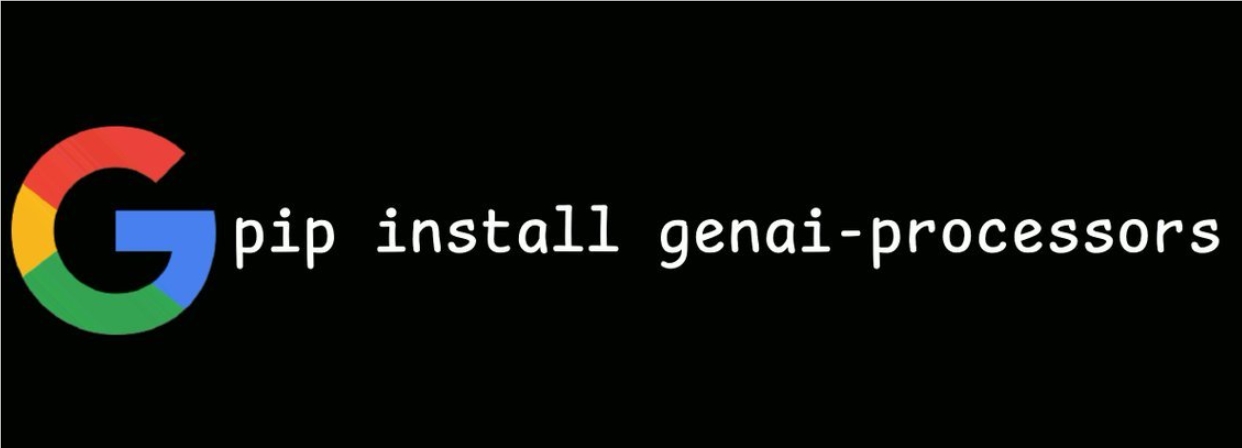Google DeepMind has recently announced the open source of a new Python library called "GenAI Processors," providing developers with a lightweight and efficient tool for building asynchronous, composable generative AI workflows. This open-source library aims to simplify the development of complex multimodal AI applications, supporting real-time processing of multimodal data such as audio, video, and text, significantly improving the development efficiency of applications based on the Gemini API.

Key Features of GenAI Processors: Modularity and Asynchronous Processing
The core of GenAI Processors is a unified "Processor" interface, allowing developers to decompose complex AI workflows into modular processing units. These units can handle the entire process from input preprocessing to model calls and output generation, supporting asynchronous stream processing of multimodal data such as audio segments, text transcriptions, and image frames. According to tests by the AIbase editorial team, the library optimizes concurrent execution using Python's asyncio mechanism, significantly reducing latency in I/O-intensive tasks, making the development of real-time applications such as voice assistants or video processing tools more efficient.
The library is specifically optimized for Google's Gemini API, featuring two built-in processors: GenaiModel and LiveProcessor, which support session-based interactions and real-time stream processing, respectively. Developers can quickly build real-time AI agents that support microphone and camera inputs with just a few lines of code. For example, combining video and audio input processing, GenAI Processors can rapidly build real-time translation or smart assistant-like applications, demonstrating strong flexibility and scalability.
Technical Core: Streaming API and Concurrency Optimization
GenAI Processors centers around a streaming API, treating all inputs and outputs as asynchronous data streams of ProcessorParts, with each data unit (such as an audio segment or image frame) accompanied by metadata. This design ensures the orderliness of the data stream while minimizing the "Time To First Token" through built-in concurrency optimization mechanisms. AIbase learned that the library's modular design allows developers to seamlessly connect different processing units to build complex workflows, while maintaining code reusability and maintainability.
Currently, GenAI Processors supports only Python, but its core directory includes basic processors, and community developers can contribute specialized functions via the contrib directory. Google DeepMind stated that it will further expand the library's functionality through community collaboration, covering more scenarios and programming languages in the future.
Industry Impact: Accelerating Generative AI Application Development
The open source release of GenAI Processors provides developers with an easy-to-use tool for building high-performance Gemini applications, especially excelling in real-time multimodal processing scenarios. Compared to traditional generative AI development frameworks, this library significantly reduces development complexity through modularity and asynchronous processing, making it particularly suitable for low-latency real-time applications such as intelligent customer service, real-time translation, and multimodal interactive agents. AIbase analysis suggests that the open source of GenAI Processors will further promote the openness of the generative AI ecosystem, attracting more developers to participate in innovation.
Although the library is still in its early stages with limited functionality, its open GitHub repository (https://github.com/google-gemini/genai-processors) offers broad space for community contributions. AIbase noted that some developers have expressed a desire for more language support and pre-trained model integration, and Google DeepMind has stated that it will continue to iterate, possibly introducing support for other mainstream AI models in the future.
